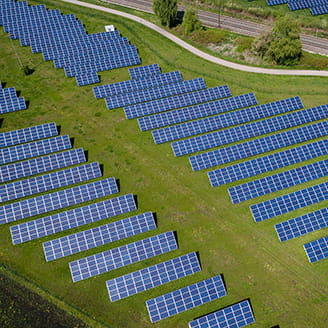Whether you’re a fleet operator, landowner, manufacturer, funder, infrastructure provider, energy supplier or grid operator we have a multi-disciplinary electric vehicle (EV) and charging infrastructure team to help you.
Shoosmiths’ national multi-disciplinary e-Mobility & infrastructure team has a proven track record supporting the sector. Our specialists advise companies involved throughout the sector from initial corporate fundraising and investment to project site selection (including real estate, commercial, planning and construction advice), to project operation and maintenance (including power purchase agreements), to operational commercial offers for consumers and third-party access to charging infrastructure, to final divestment.
The collaborative approach we take means we are able to provide market-leading legal expertise on all aspects of the EV industry, including real estate, dispute resolution and litigation, corporate and commercial, banking and finance, tax and regulation.
Our expertise:
- electrification of vehicle fleets
- framework compliance
- hydrogen-powered vehicles
- public procurement
- construction
- smart charging and vehicle-to-grid (V2G)
- commercial contracts
- tax corporate acquisitions and fundraising
- co-location of EV chargers storage assets
- EV charging related disputes
- privacy and data
- electricity supply
- intellectual property
- procurement
- grid connections
- supply chain management
- business models and structuring
- finance
- installation, operation and maintenance
- planning and real estate
Our experience:
- top 5 market share CPO - advising a significant charge point operator in the UK on its continued network expansion
- a multi-national telecoms company – advising on the implementation of its dedicated EV charging equipment business in the UK, including the creation of a suite of associated B2B and B2C template contracts
- a fibre utility company – advising on its roll-out of a new EV charge point installation and operation business unit focused on residential car parks
- a large integrated vehicle financing platform provider – advising on a master services agreement to provide access to public charging networks via a subscription service made available to users of its EV fleet
- Volkswagen Group - advising on its tie up with Tesco for the development of the largest UK retail electric vehicle (EV) charging network, powered by Pod Point, comprising more than 2,400 free to use EV charging bays across 600 Tesco stores within the next three years
- a leading UK motorway service station operator – advising on its agreement with Ionity to install high-powered ultra-fast charging stations across its service stations
- Nissan – advising on its partnership with Uber, to promote the uptake of EVs across one of the largest driver fleets in the world
- LXi REIT plc – advising in relation to various long lease sites for the creation of EV charging hubs, including in relation to Fastned superfast charging hubs
- various investment houses – advising in various aspects including on a bid to be the delivery partner for the UK Government’s new Charging Infrastructure Investment Fund
Electric vehicles
An EV is defined as a vehicle which uses electric motors to drive its wheels. Deriving some or all its power from large rechargeable batteries, the distance an EV can travel between recharging is known as its range
The main categories of EV’s are:
- all-electric EVs arealso known as battery electric vehicles (BEVs), whose only power source is their battery. They are recharged by plugging them in to the electricity grid
- plug-in hybrids (PHEVs) which consist of a battery, electric drive motor and an internal combustion engine and can switch between running on electricity or fossil fuels (or both). They can be recharged by plugging them in to the electricity grid
- hybrids (HEVs) that do not plug in, they have a much smaller battery which is recharged while driving. HEVs can drive in electric mode for a few miles
- fuel cell vehicles generating their own electricity on-board from a fuel such as hydrogen, and do not need to plug in to the electricity grid to recharge. Refuelling is similar to a petrol car in that it requires a hydrogen supply chain and refuelling infrastructure
Charging infrastructure
A combination of factors determines the extent to which EV users utilise home, work, public and/or fast-charging infrastructure. Rapid growth in the use of EVs requires a corresponding growth in the availability of charging infrastructure. Currently there is an acute shortage in charging infrastructure which, if not addressed, could stunt the growth of the EV market, and prevent it from reaching its potential.
Users of EVs in the UK rely heavily on home charging, with domestic units accounting for more than 90 percent of all chargers. There are obvious logistical constraints on this method of charging, particularly in cities where residents often live in dwellings of two storeys or more without access to private parking. It is therefore crucial to the growth of the EV market that other forms of charging infrastructure are developed.




